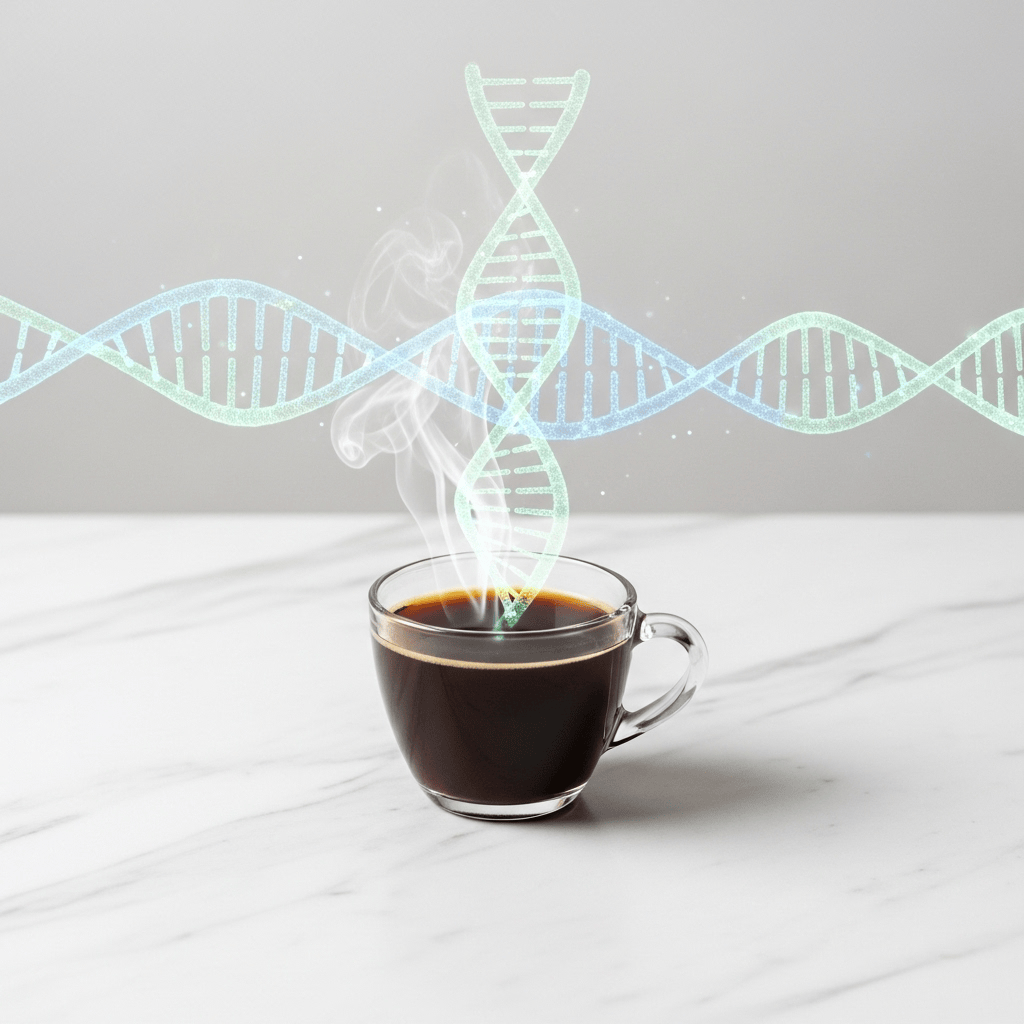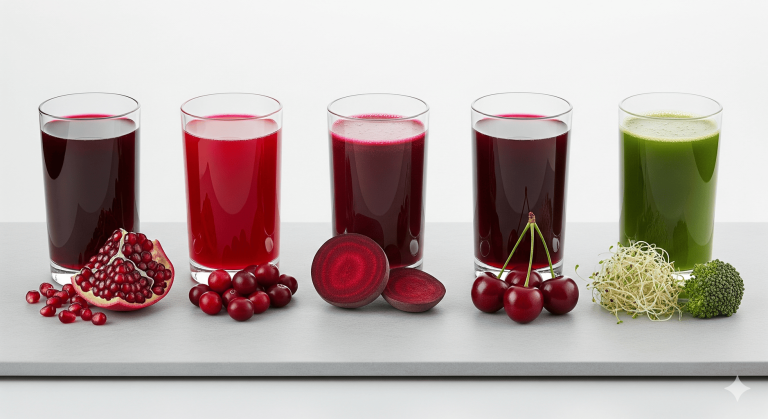Coffee: Your Ally or Enemy on the Path to 100? Here’s What Science Says.
Every morning, millions of us reach for a cup of coffee. It’s a ritual, an energy boost, a quiet moment for ourselves. But have you ever stopped to think about what you’re actually pouring into your body? Is this aromatic beverage bringing you closer to a long, healthy life, or is it secretly sabotaging your efforts?
So many myths have sprung up around coffee that it’s easy to get lost. As a scientist and longevity enthusiast, I’ve analyzed hundreds of studies to give you a clear, evidence-based answer. It’s time to separate fact from fiction.
A Sip of History: From Dancing Goats to a Global Phenomenon
Legend has it that coffee was discovered by an Ethiopian shepherd named Kaldi, who noticed his goats became incredibly energetic after eating red berries from a particular shrub. And so, from the 9th century, coffee’s global journey began. From the Arabian Peninsula, where the first coffee houses were established, it traveled to Europe in the 17th century to become one of the most popular drinks in the world. Today, the Scandinavian countries lead the world in consumption, with Finland at the top, where the average resident drinks the most coffee globally.
The Art of Brewing vs. Your Health – Does the Method Matter?
It turns out, it matters a lot! The way you prepare your coffee affects its chemical composition and, consequently, its impact on your body.
- Filtered Coffee (Drip, Pour-over): This is the gold standard for health. The paper filter traps most of the cafestol and kahweol—compounds that can raise levels of “bad” LDL cholesterol.
- Espresso: The short contact time between water and coffee means it contains fewer of these compounds than unfiltered brews. It’s a concentrated shot of antioxidants.
- Turkish Coffee, French Press: These are unfiltered methods. They deliver the highest amount of cafestol and kahweol. If you have concerns about your cholesterol, it’s wise to limit these.
The takeaway: For daily, health-promoting consumption, filtered coffee from a drip machine or other filtered methods is your best choice.
Coffee Under the Microscope: Elixir or Poison?
Let’s get to the heart of the matter. What does science say about coffee’s impact on our health and longevity?
The Health Benefits – Why You Should Drink Coffee
- A Treasure Trove of Antioxidants: Coffee is one of the richest sources of polyphenols in the Western diet. These compounds fight free radicals, reducing inflammation in the body—a key driver of the aging process.
- Brain Protection: Regular coffee consumption is strongly linked to a lower risk of neurodegenerative diseases. Studies show a reduced risk of Parkinson’s disease by up to 60% and Alzheimer’s disease by 65%.
- Lower Risk of Type 2 Diabetes: Caffeine and other compounds in coffee improve insulin sensitivity and glucose metabolism.
- A Healthier Liver: Coffee protects the liver from cirrhosis and reduces the risk of liver cancer.
- A Longer Life: This isn’t just a headline. Large-scale studies, like the one published in The New England Journal of Medicine, show that moderate coffee consumption (3-5 cups per day) is associated with a lower risk of premature death from all causes, including heart disease.
“The data is quite clear: moderate coffee consumption can be part of a healthy lifestyle. Its potential benefits, especially in the prevention of chronic diseases, are far greater than its potential risks.” – Dr. Frank Hu, Harvard School of Public Health.
The Dark Side of Coffee – When to Be Cautious
- Sleep Disruption: This is obvious but worth emphasizing. Caffeine blocks adenosine receptors in the brain, which are responsible for feelings of drowsiness. Its half-life is about 5-6 hours, meaning a coffee at 4 PM is still half-active in your system at 10 PM, disrupting your sleep quality.
- Anxiety and Jitters: Individuals sensitive to caffeine or with a predisposition to anxiety disorders may experience restlessness, shaky hands, and heart palpitations after drinking coffee.
- Increased Blood Pressure: The effect is usually short-term and mainly affects people who do not drink coffee regularly.
- Unfiltered Coffee and Cholesterol: As mentioned, brewing methods without a filter can raise LDL cholesterol levels.
The Golden Rule: How Much and When?
- How much? A safe and beneficial dose for most healthy adults is considered to be up to 400 mg of caffeine per day. This is equivalent to about 3-5 cups (8 oz / 240 ml) of filtered coffee. Remember, everyone has a different genetic tolerance!
- When? Avoid coffee immediately after waking up. Your body naturally produces cortisol (the stress hormone) at that time to wake you up. Drinking coffee then can blunt its effects. The best time is between 9:30 AM and 11:30 AM. Have your last cup at least 8-10 hours before you plan to go to sleep.
Contraindications: Coffee should be avoided or severely limited by pregnant women, individuals with severe heart conditions, uncontrolled hypertension, serious anxiety disorders, and children.
Coffee and the Longevity Code
To sum up, is coffee the key to longevity? It’s not a magic elixir on its own. But as part of a balanced lifestyle—alongside a healthy diet, exercise, good sleep, and stress management—moderate consumption of filtered coffee is a powerful ally for a longer, healthier life. By reducing the risk of many chronic diseases, coffee can be a valuable tool in your quest for biological youth.
Drink it wisely, enjoy its flavor, and reap the benefits it offers.
Coffee is just one of hundreds of factors that determine how long and how well you will live. Want to learn about the rest? Discover how your habits, genetics, and lifestyle choices are shaping your personal longevity potential?
We invite you to take our assessment. Our advanced AI algorithm will analyze your answers and generate a personalized longevity report just for you. Discover what you can change today to add years to your life, and life to your years.
Discover Your Longevity Potential – Take the Assessment Here
Interesting Scientific Publications:
- Association of Coffee Consumption with Total and Cause-Specific Mortality in Three Large Prospective Cohorts – Circulation
- Coffee, Caffeine, and Health – The New England Journal of Medicine
- Long-Term Coffee Consumption and Risk of Cardiovascular Disease: A Systematic Review and a Dose-Response Meta-Analysis of Prospective Cohort Studies – Circulation



